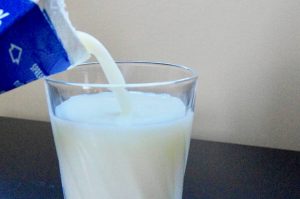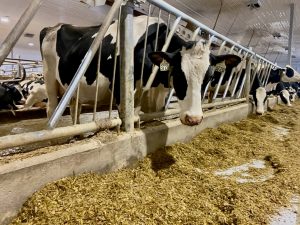
David Wiens, chair of the Dairy Farmers of Manitoba, talks about the inflation we are all experiencing in Canada.
“When we look at our costs from the past year, for example, fertilizers have gone up by 44 per cent, fuel has gone up by 32 per cent, and animal feed has gone up by eight per cent. So, those are the things that are causing a lot of pressure on dairy farms across the country.”
Wiens explains that dairy farmers understand that Manitobans are experiencing the same inflation, but this needs to be dealt with.
“Certainly, we’re in a situation now where those costs are coming at us, and we have to address them sooner rather than later.”
According to Wiens, costs have continued to rise, and so has the cost of operations.
“Whether it’s fertilizer, or fuel, or feed, those things are costing us more for doing the very same things. When it comes to things like animal feed, we have to meet the nutritional needs of our cows, and so there’s not any shortcuts that that that can be taken, because the priority is that the nutrition is right for the cows.”
Wiens does point out that there is transparency with raising the price of milk as it is regulated through “Farm gate,” which is adjusted through the Canadian Dairy Commission.
“That differs from many other parts of the economy where the costs of goods and services go up, and there’s no level of transparency there whatsoever. So yeah, It just comes back to the pressures that we are facing. I know that you know Manitobans can speak to that as well, regardless of where you are at in terms of the economy.”
Wiens, who has been the chair of Dairy Farmers of Manitoba since 2006 and on the board since 1995, says the weather the last two years has played a big part in the pressure they face.
“We’ve gone from an extreme drought last year where we had a lot of challenges just trying to get enough feed together for the cows. So, there was feed being hauled in from great distances. Everybody is a bit tight in terms of feed supply and then, of course, with the spring that we’ve had now, which is just the opposite, it’s become cool and wet, which has delayed the forage crops. We’re just now starting with the first cut, and now it’s gone to the other extreme, which is on top of all the price increases we’re seeing just to get the feed together for the cows has been a real challenge going from one year to the next.”
Wiens notes that they sent their concerns to the Canadian Dairy Commission, and they will review the request for a price increase after talking it over with stakeholders.
“I expect that there would be a decision before the end of June. And if there is going to be an adjustment, it would happen for the 1st of September at the earliest.”
In closing, Wiens stresses that we should learn the importance of food sovereignty, as we see circumstances around the world where a lot of countries will stop exporting critical commodities.

























